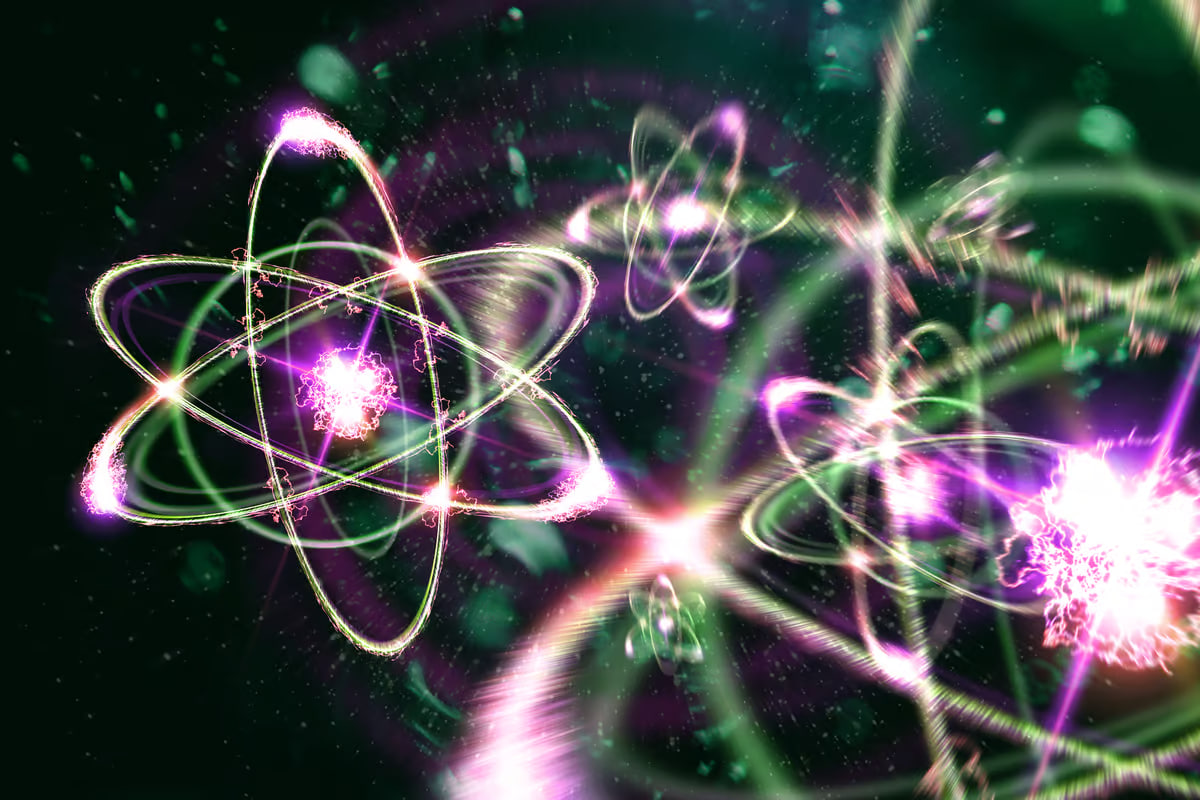A new hypothesis in quantum cosmology suggests that the universe is accelerating due to future conditions, not dark energy. Are we facing a scientific revolution? In the late 1990s, astronomers made a puzzling discovery: the universe is not only expanding, but doing so at an accelerated rate. This completely unexpected acceleration forced the introduction of concepts such as “dark energy”, a hypothetical entity that would fill the cosmos and push its expansion. But what if that explanation were unnecessary? What if the universe is not only driven by what happened at its origin, but also by what will happen at its end?
This is exactly what the theoretical physicist Charis Anastopoulos proposes in an article recently published in Physical Review D. His proposal is bold: to incorporate final conditions into the evolution of the universe, not just initial ones. That is to say, that the destiny of the cosmos would influence its current behavior. According to his calculations, this idea is enough to explain cosmic acceleration without the need for dark energy, exotic matter or new physical laws. A profound twist on how we understand time, causality and the universe itself.
The universe as a complete quantum system
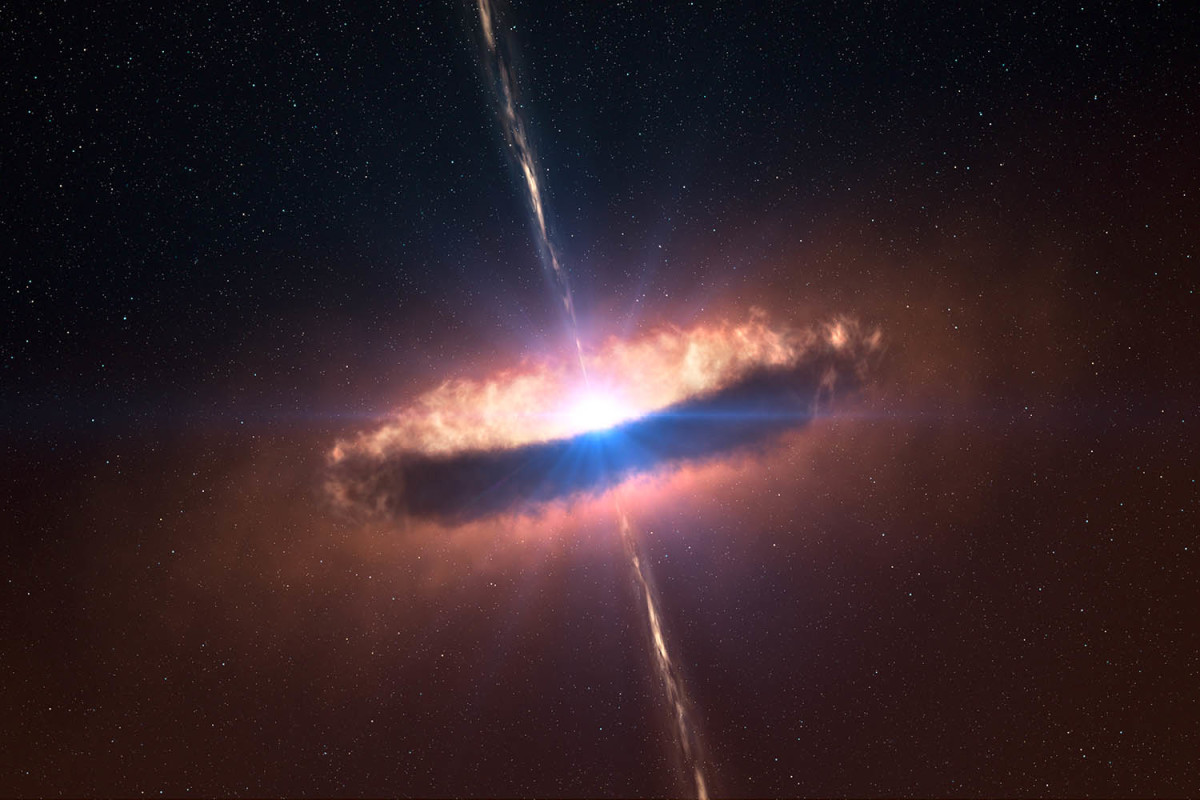
In classical physics, things happen in only one direction: an initial state is established and, from there, everything evolves. But in quantum mechanics the rules are different. Systems can also be defined by final conditions, something that is already being applied experimentally on a small scale, using techniques such as postselection. Anastopoulos takes this logic to its extreme: he applies these principles to quantum cosmology, where the entire universe is treated as a single closed quantum system.
This is not just a theoretical proposal. In his article, Anastopoulos argues that cosmic acceleration can be understood as a genuine macroscopic quantum effect generated solely by the imposition of final conditions. In other words, the universe accelerates not because of some mysterious substance, but because, from the quantum point of view, it already “knows” its final state. An idea that even seems esoteric.
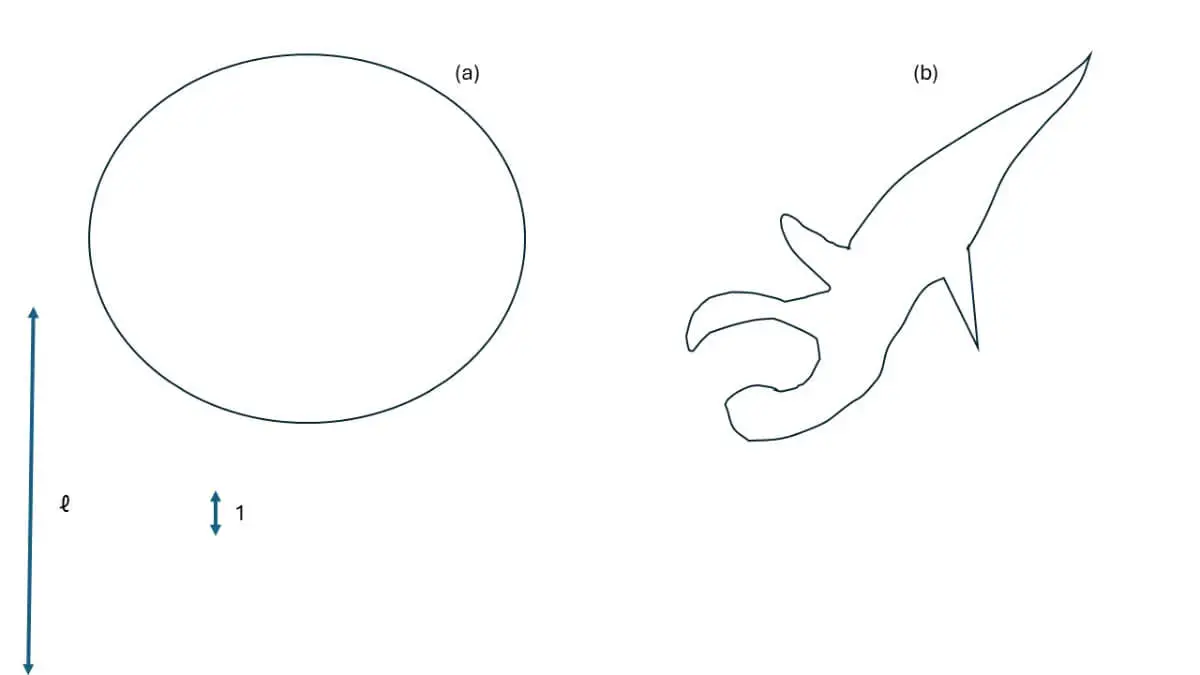
What is quantum cosmology?
Quantum cosmology is a branch of theoretical physics that attempts to apply the rules of quantum mechanics to the entire universe. Unlike classical cosmology, which is based on Einstein’s theory of general relativity and works well as long as we don’t get too close to the Big Bang, quantum cosmology also seeks to explain the first moments of the universe, where known laws are no longer sufficient.
In this approach, the universe is not described as a traditional space-time, but as a quantum wave function containing all its possible configurations. This allows us to explore scenarios where the universe can have multiple initial and final states, or even go through quantum transitions. The idea is to combine relativity with quantum mechanics in a coherent framework, something that is attempted through theories such as quantum loop gravity, string theory or models such as quantum loop cosmology.
In short, it is a tool to go beyond current limits and try to answer questions that classical cosmology cannot resolve, such as what exactly happened at the origin of time, or whether the universe has a destiny written into its quantum structure.
Quantum teleology: an ancient idea with modern tools
The idea that a system is directed towards an end is known as teleology. In modern science, this concept is often viewed with suspicion because it implies a finality that seems incompatible with the experimental method. But Anastopoulos reminds us that quantum physics has a much more flexible view of causality, and that final states are not “objectives” imposed from outside, but internal elements of the system, as fundamental as the initial states.

“The initial or final states should be considered components of the fundamental probabilistic assignment. They are laws of nature that determine how the universe begins and ends,” says the Greek physicist. Thus, the proposal does not require that the universe have a ‘will,’ but simply that quantum physics be applied to its totality, including how it might end.
This vision moves away from the traditional “arrow of time” and the way in which most cosmological models have been formulated. In fact, most work in quantum cosmology focuses only on establishing an initial state. One exception was Stephen Hawking, who in the 1980s proposed that there could be final conditions symmetrical to the Big Bang. His hypothesis didn’t work, but it opened the door to approaches like Anastopoulos’s.
What does “teleology” mean in science?
The term teleology comes from the Greek telos, which means “end” or “purpose”. It is used to describe explanations in which a phenomenon occurs because it is oriented towards an objective or final result. For centuries, it was a common way of interpreting nature: for example, trees were said to bear fruit “in order” to feed animals. However, with the development of modern science, these types of explanations were set aside, since contemporary science is based on causes that come from the past, not the future.
In modern physics, teleology has been viewed with suspicion because it sounds like imposed finality or even something mystical. But in the context of quantum mechanics, this concept takes on a more technical nuance. In certain theoretical frameworks, such as the quantum cosmology explored by Anastopoulos, it is proposed that the final state of the universe could influence its current evolution, without this implying an external intention or purpose. Thus, teleology is redefined as a tool within quantum physics, not as a philosophical belief, but as a real mathematical and physical possibility in the description of the cosmos.
The calculation behind the proposal
Anastopoulos’ work does not stop at philosophical speculation. He develops a rigorous mathematical model in which he deduces the equations of the universe when quantum final states are imposed. This model is based on the “deterministic limit” of quantum probabilities, a technical concept that allows quantum behaviors to be translated into macroscopic effects, such as those we observe in the expansion of the universe.
According to their simulations, the behavior of the universe under this hypothesis naturally reproduces a transition from a non-accelerating expansion phase to an accelerating phase, very similar to that revealed by current astronomical observations. This is key: “Cosmic acceleration is generated solely by the imposition of final conditions at the quantum level,” Anastopoulos writes in his article.
Furthermore, these results are achieved without resorting to arbitrary cosmological constants or the introduction of exotic matter or energy, such as dark energy. This makes the proposal more parsimonious from a theoretical point of view: it explains a complex phenomenon with fewer added assumptions.
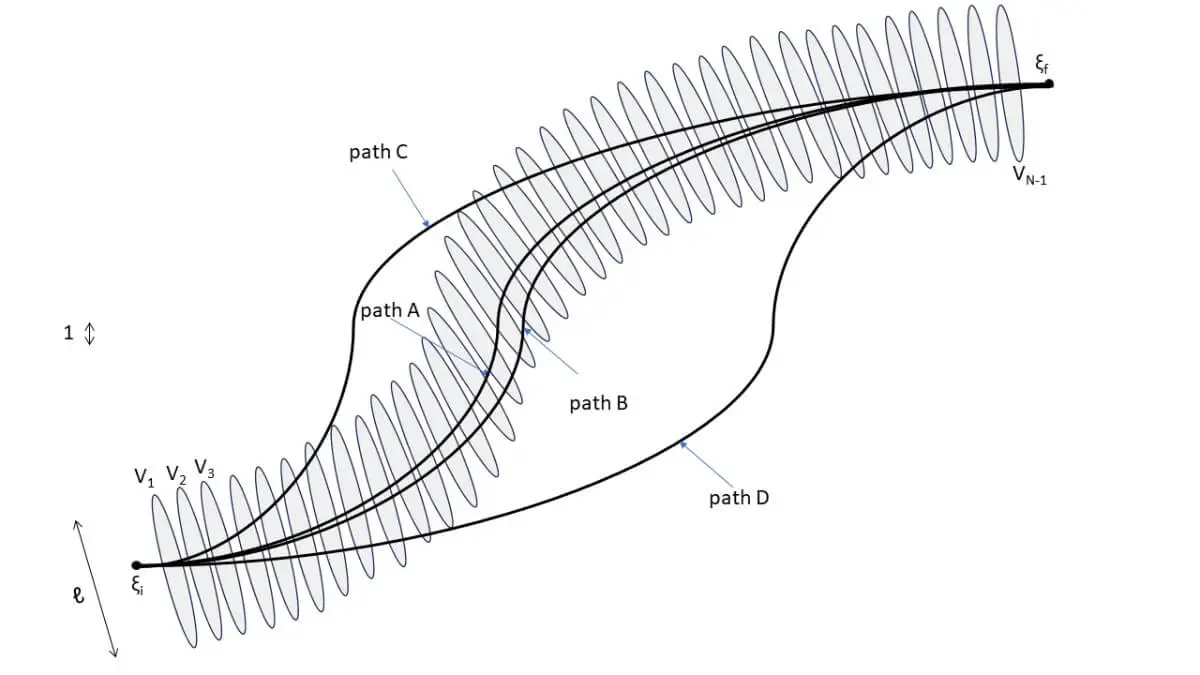
A sequence of measurements in the state space follows a tube surrounding a classical trajectory; different trajectories may be indistinguishable if they remain within the same general path, while others, further away, have an almost zero probability of occurring. Source: Physical Review D
Implications for physics and philosophy
If this hypothesis is confirmed, its impact would be enormous. Not only in cosmology, but also in our understanding of time and reality itself. The notion that the future influences the present may seem shocking, but in quantum physics it is not far-fetched. There are already interpretations, such as the two-state formulation of Aharonov, that allow for a similar temporal symmetry.
However, Anastopoulos also recognises the current limitations of the model. For example, the approach is not applicable to the early universe, close to the Big Bang, where the deterministic limit cannot be taken. For that stage it is necessary to use a complete quantum description, which is still under development. There is also a lack of direct observational evidence to allow this hypothesis to be contrasted with others.
Despite this, the author is optimistic about the potential of his approach: “Even a simplified model will allow us to analyze cosmological inhomogeneities in the early universe and, with this, connect with observations of the cosmic microwave background and primordial gravitational waves”.
Goodbye to dark energy?
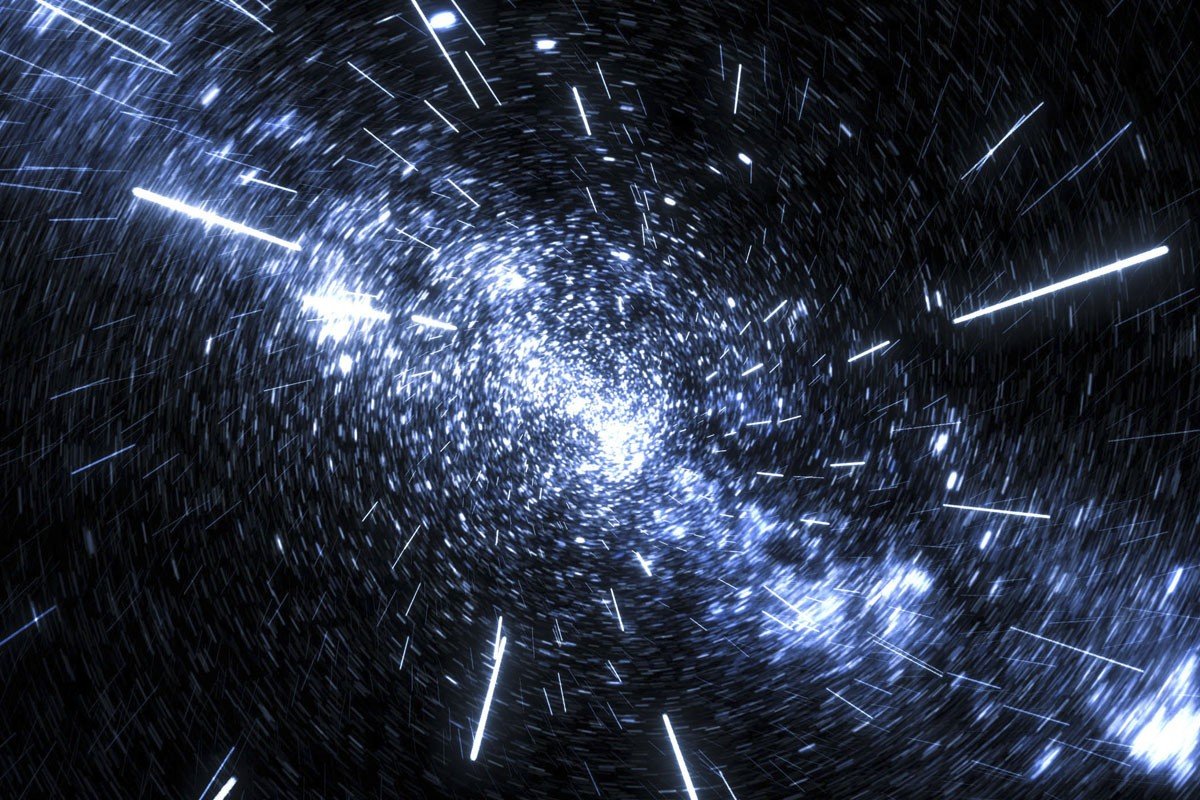
One of the most provocative consequences of this proposal is that it could eliminate the need for dark energy. This concept, although dominant in current models, is in reality a great unknown. It has not been detected directly, and its nature is completely unknown. If its role as the engine of accelerated expansion could be replaced by an emerging quantum effect, it would be a paradigm shift.
This does not mean that dark energy has been ruled out, but it does open up a different line of research. One that, moreover, does not depend on speculative physics or on introducing invisible entities. It is enough to apply quantum mechanics to the universe as a whole and accept the possibility that time is not as unidirectional as we thought.
We will have to wait for more physicists to examine this model, test it and develop it. But what is clear is that, with this proposal, quantum cosmology goes a step beyond its usual boundaries and forces us to rethink the very basis of how we understand the cosmos.

